
Ancient Greek athletics comprised most of what we see in modern Track & Field. All of the disciplines represented there grew out of martial necessity; indeed, what else could the javelin, shot put, discus and hammer throw be for besides the decimation of one's enemy? Of course, running hurdles and pole vaulting have everything to do with the dodgy business of negotiating the rocky terrain of Greece, and running, well, in a time when modes of conveyance were rather limited, running has its own rather obvious merits. And finally, boxing and wrestling have obvious battle origins (pankration was a combination of the two whose only rules were no gouging and no biting - a common opening move was to break your opponent's finger).

In reflecting on the athletic life of the ancient Greeks, what is so striking is that they even pursued an athletic life at all. Athletics as we know them now started as early twentieth century novelties. True, games were played - baseball, cricket, la crosse, tennis - but the single-minded pursuit of athletic perfection was relatively unknown until about a hundred years ago. The Greeks, however, were passionate about physical as well as mental perfection. Their training was totally organic, to be sure, in the buff ~ lifting heavy stones in fluid arcs that engage all the muscles, sprinting, wrestling. There seemed no break in the continuum of athletic cultivation and the exigencies of daily life. One was abstracted from the other, and one served to maintain the other. According to Socrates: "No citizen has any right to be an amateur in the matter of physical training. It is part of his profession as a citizen to keep himself in good condition, ready to serve the state at a moment's notice. The instinct of self-preservation demands it likewise: for how helpless is the state of the ill-trained youth in war or danger! Finally, what a disgrace it is for a man to grow old without ever seeing the beauty and the strength of which his body is capable!" [italics mine].
And so it ultimately is with cycling. The bicycle is, as far as modes of conveyance are concerned, imperfectible; its basic design hasn't changed in 130 years. Practically speaking, it is the best way of getting from one place to another, and athletically speaking, it is unsurpassed in its manifold physical benefits. And if you take Socrates' admonition to heart, you realize that it is, in a certain sense, every person's duty to contribute to society at large, and by giving up your car and using a bicycle, you are doing just that. Noise and air pollution are reduced, and the landscape is beautified with the very presence of a human being in athletic form. I can think of no better contribution in this day and age.

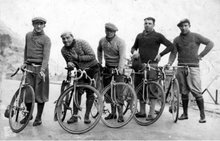































.jpg)





























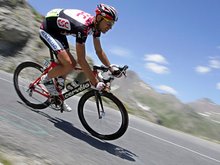



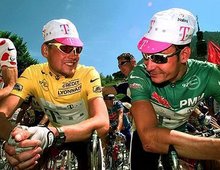




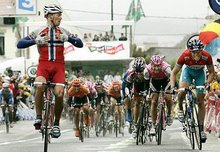









.jpg)

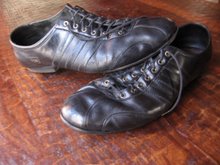




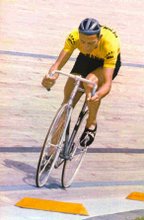




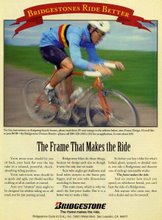








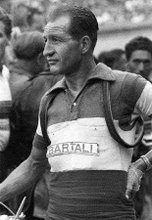


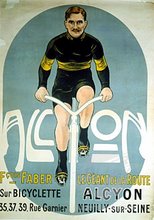







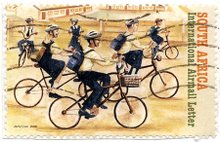



























































.jpg)




.jpg)








2 comments:
"And if you take Socrates' admonition to heart, you realize that it is, in a certain sense, every person's duty to contribute to society at large, and by giving up your car and using a bicycle, you are doing just that. Noise and air pollution are reduced, and the landscape is beautified with the very presence of a human being in athletic form. I can think of no better contribution in this day and age."
Quoted for absolute agreement.
Cheers, mate! I am always happy to provide with quotable material. Thanks for reading.
Post a Comment